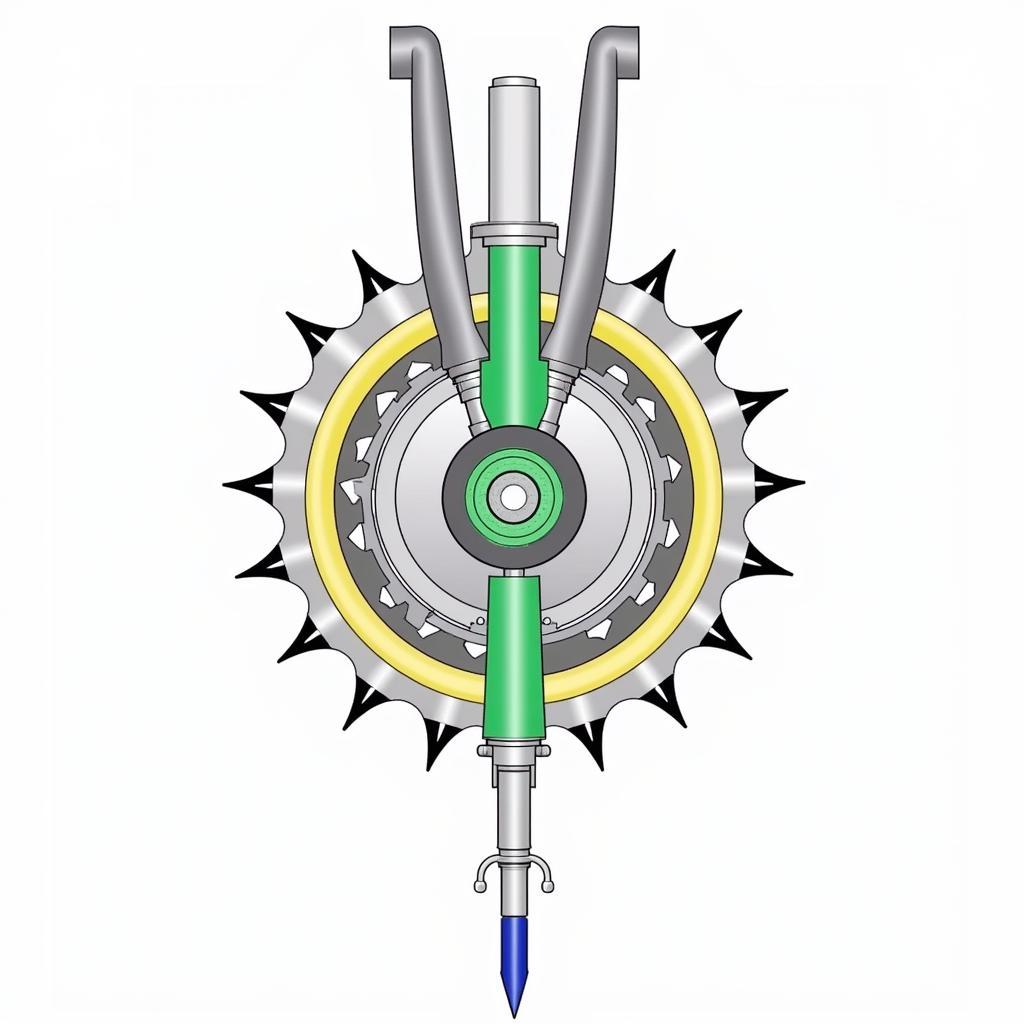If you’re concerned about which cars have an oil dilution problem, you’ve come to the right place. This issue, where fuel contaminates the engine oil, can lead to significant engine damage if left unchecked. We’ll explore the vehicles commonly affected, the causes of this problem, and how you can identify and address it to protect your engine.
Understanding the Oil Dilution Issue
Oil dilution occurs when unburned fuel makes its way into the engine’s crankcase and mixes with the oil. This can happen in several ways, but the most common culprit is frequent short trips, especially in cold weather. When the engine doesn’t reach its optimal operating temperature, fuel doesn’t fully combust and can seep past the piston rings into the oil. Direct injection engines, while efficient, are often more susceptible to this issue due to their fuel injection strategy.
Common Symptoms of Oil Dilution
- Increased oil level: If you notice your oil level is higher than normal, it could be a sign of fuel contamination.
- Strong gasoline smell from the oil: A pungent fuel odor emanating from the dipstick is a strong indicator of oil dilution.
- Thinned oil consistency: Diluted oil will feel thinner than usual, losing its viscosity.
- Reduced fuel economy: As fuel enters the oil, it affects the engine’s efficiency, leading to decreased mileage.
Which Cars Have Oil Dilution Problem? Specific Makes and Models
Several vehicle manufacturers have faced this issue, particularly with certain models equipped with direct injection engines. While not an exhaustive list, some of the commonly reported vehicles include certain models of:
- Honda CRV
- Acura RDX
- Hyundai Sonata
- Kia Optima
- Ford F-150
- Chevrolet Equinox
It’s important to note that not every vehicle within these models will experience oil dilution. Several factors, including driving habits and climate, contribute to the issue’s likelihood.
Why Are Direct Injection Engines More Prone to Oil Dilution?
Direct injection engines inject fuel directly into the combustion chamber under high pressure, improving power and efficiency. However, this injection process can also lead to incomplete combustion during cold starts and short trips, increasing the risk of unburned fuel entering the crankcase.
 Diagram of Direct Injection Engine Showing Potential Oil Dilution Points
Diagram of Direct Injection Engine Showing Potential Oil Dilution Points
What Can You Do About Oil Dilution?
- Regular Oil Changes: Frequent oil changes are the most effective way to mitigate the effects of oil dilution. Following the manufacturer’s recommended oil change intervals is crucial, and even more frequent changes may be necessary in severe cases.
- Extended Warm-Up Periods: Allowing your engine to reach its operating temperature before driving, especially in cold weather, helps ensure complete fuel combustion.
- Avoid Frequent Short Trips: If possible, consolidate short trips or allow your engine to run for a longer duration to reach its optimal operating temperature.
- Consult a Qualified Mechanic: If you suspect your vehicle is experiencing oil dilution, have it inspected by a qualified mechanic who can accurately diagnose the issue and recommend appropriate solutions.
“Regular maintenance, including frequent oil changes, is paramount for vehicles prone to oil dilution,” says automotive expert, Michael Stevenson. “Catching the problem early can prevent costly engine damage down the road.”
 Mechanic Inspecting Car Engine for Oil Dilution Issues
Mechanic Inspecting Car Engine for Oil Dilution Issues
Conclusion
Understanding which cars have an oil dilution problem, the underlying causes, and preventative measures is essential for maintaining your vehicle’s engine health. By being proactive and addressing potential issues early on, you can avoid costly repairs and ensure a longer lifespan for your car. If you have any concerns or need assistance, feel free to contact us at AutoTipPro at +1 (641) 206-8880. Our office is located at 500 N St Mary’s St, San Antonio, TX 78205, United States.
“Ignoring oil dilution can lead to serious engine problems, such as accelerated wear and tear,” advises Sarah Johnson, a seasoned automotive technician. “Don’t hesitate to seek professional help if you suspect your car is affected.”
FAQ
- How often should I check my oil level? It’s a good practice to check your oil level at least once a month.
- What is the best oil to use for cars prone to oil dilution? Consult your owner’s manual for the manufacturer’s recommended oil type and viscosity.
- Can oil dilution void my warranty? It’s possible. Follow your scheduled maintenance and consult your dealership if you experience oil dilution.
- Is oil dilution a common problem? It’s more prevalent in certain vehicles with direct injection engines, particularly during cold weather and with frequent short trips.
- How much does it cost to fix oil dilution? The cost varies depending on the severity of the issue and may range from simple oil changes to more extensive engine repairs.
- Can I fix oil dilution myself? While regular oil changes can help mitigate the effects, it’s best to consult a mechanic for diagnosis and potential repairs.
- What are the long-term effects of oil dilution? Untreated oil dilution can lead to premature engine wear, reduced performance, and potentially catastrophic engine failure.




Leave a Reply